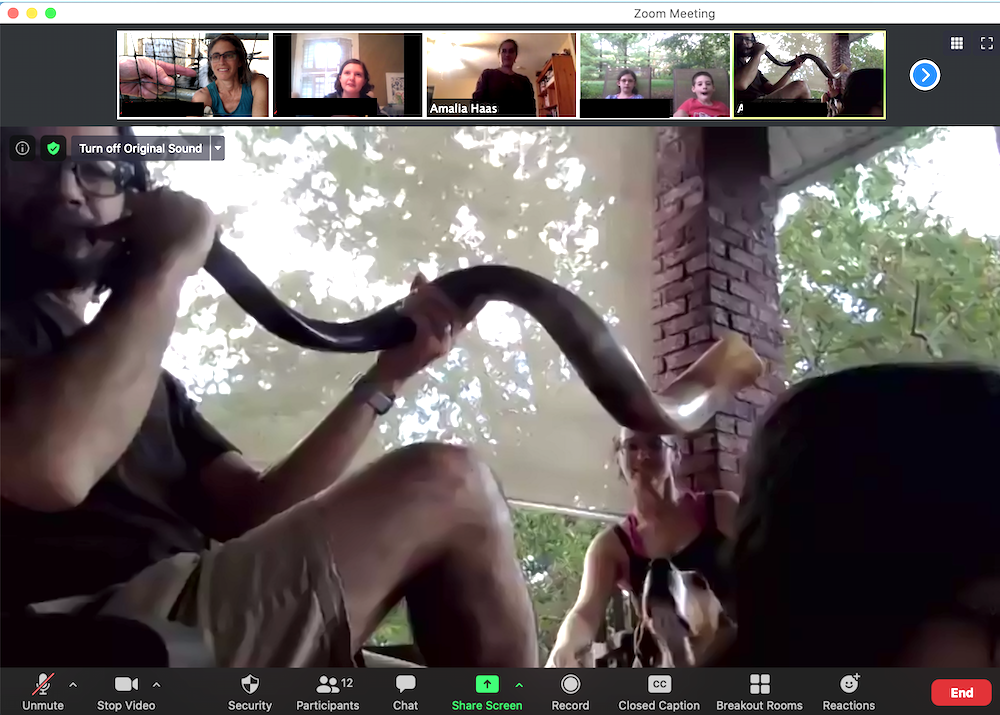The Jewish people have survived millennia by recreating our traditions and rituals. Sukkat Shalom is blessed to be dually-inspired towards this goal through our connections with Reconstructing Judaism and ALEPH: Alliance for Jewish Renewal. Reconstructionism teaches us that Judaism is an evolving civilization. As such it is our duty as Jews to find ways to make our traditions meaningful, in our own times. Likewise, Renewal reminds us that as we move forward, we must remind ourselves of where we have been. The global Covid-19 pandemic has pushed us into a new era of remaking ourselves as we wrestle with new ways to mark time and bolster our communities.
As we approached the 5781 Days of Awe from a distance this year, we sought new ways to stay connected to one another and to connect in new ways to our traditions. Our youngest members, our Teva Travelers (children ages 5-12), helped us on that path. As part of their back-to-Hebrew School programming, they sent holiday postcards to each of our members. Those messages were in turn shared back with the community through posts on social media. In this way messages for a good year were spread and amplified throughout our community.

In addition, the children hosted a special guest during their first class session. Opening our gates wide, we welcomed Rabbi Amalia Haas, one of only 43 Orthodox female Rabbis worldwide. She happens to also be a beekeeper, who lives in Ohio! We were lucky to get a chunk of her time between bottling and shipping honey around the country for Rosh haShanah. Rabbi Amalia shared information on bee biology, habitat, and behaviors including the piping sounds of new queens which she believes may have inspired the blast patterns of the shofar.
“There is a sound made by the bees in the hive that is much like the sound of the shofar. The queens make a piping, shofar-like sound, as they are preparing to leave the hive for the first time. And just as we stand still on the high holidays and listen in services, the bees (who are usually moving around all the time) stand still and listen when the queen’s voice is heard. They swarm out of the hive with her and many thousands of bees hanging together in silence, in a meditative state waiting for directions on where to go, just as we are focused on our liturgy on Rosh haShanah.”

Rabbi Amalia also taught us that honey is a perfect food; the one thing nature provides that never goes bad. No wonder we eat it at Rosh haShanah to put us on the path to a good year.
Rabbi Amalia touched on many other interested connections between bees and Judaism we hope to pursue in further youth (and adult) learning sessions. Chief among them, the archaeological discovery of beehives in the center of the ancient city of Tel Rahov in Israel.
The past six months have been hard for everyone, not least our children. When schools closed in March they lost not only their educational direction, but their chief markers of time and connections to community. As it has for generations, Rosh haShanah afforded a chance to reset the clock. Perhaps not in they same ways as before, but in ways we hope they will remember as a blessing.
